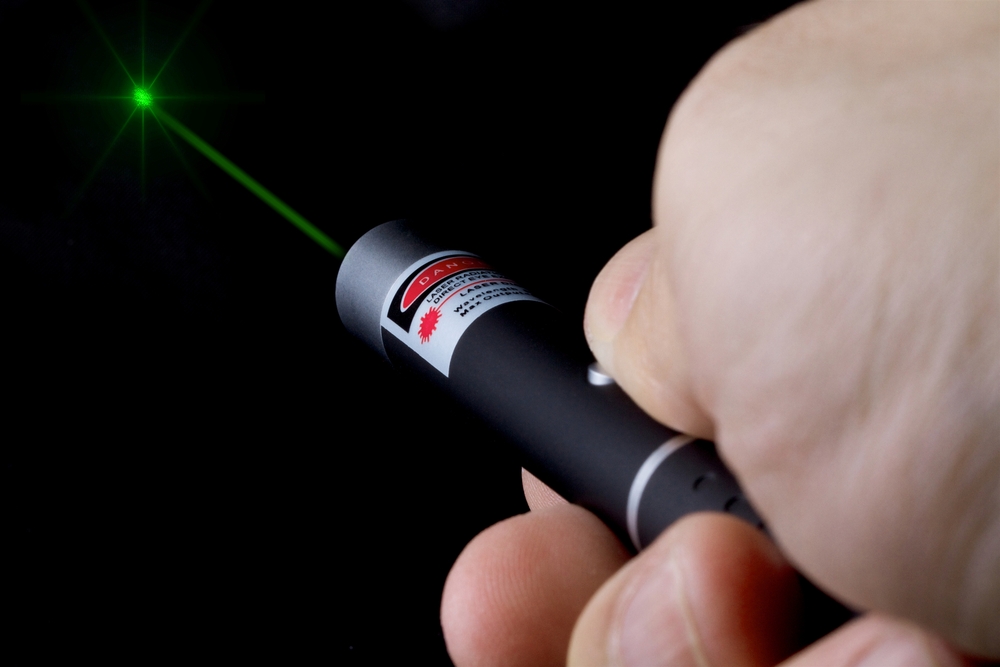How Lasers Can Damage Eyes Over Long Distances

The eye damage that a JetBlue pilot suffered after two green laser beams were reportedly shined into a New York-bound airplane flying at 5,000 feet this week happens because the lens of the eye focuses light onto the retina, and the heat energy is enough to burn the eye, expert say.
When light enters the eye, it is focused by the lens on the retina at the back of the eye, explained Dr. Neil Bressler, an ophthalmologist at Johns Hopkins University School of Medicine.
The damage happens when the focused light is too strong or lasts for too long, and heats the part of the retina that contains pigment, or color.
"That pigment absorbs the light just like dark clothing, and just like dark clothing radiates, it radiates heat," Bressler said.
The heat can burn the eye and permanently damage the retina. If the laser light is brief or weak, it may not produce the same heat or long-lasting damage, but instead could create a small after-image, which is a bright spot that prevents normal vision.
This is similar to what happens when you stare at a bright light for too long — you continue to see a bright spot for a few seconds after looking away, because "it takes the retina time to recover, to be able to see again," Bressler said.
But the thermal damage could also cause a permanent blank spot, he said, which is impossible to treat and would require retina replacement, he said. That type of damage is very rare, however, and Bressler said that he had mainly seen it in people who've been in industrial accidents.
Sign up for the Live Science daily newsletter now
Get the world’s most fascinating discoveries delivered straight to your inbox.
Light from lasers maintains its energy even over long distances. The extent of the eye damage that occurs depends on the strength of the laser, the distance from the laser and length of exposure.
Last year, lasers above a certain strength were outlawed in the U.S. in an attempt to limit this kind of harm.
In the case of the JetBlue pilot, officials with the Federal Bureau of Investigation and the Federal Aviation Administration said they are searching for the person who shined the lasers into the plane’s cockpit, according to news reports.
The plane landed safely.
Pass it on: Lasers damage the eye by heating up the retina, and can cause permanent damage.
This story was provided by MyHealthNewsDaily, a sister site to LiveScience. Follow MyHealthNewsDaily on Twitter @MyHealth_MHND. Find us on Facebook and Google+.









